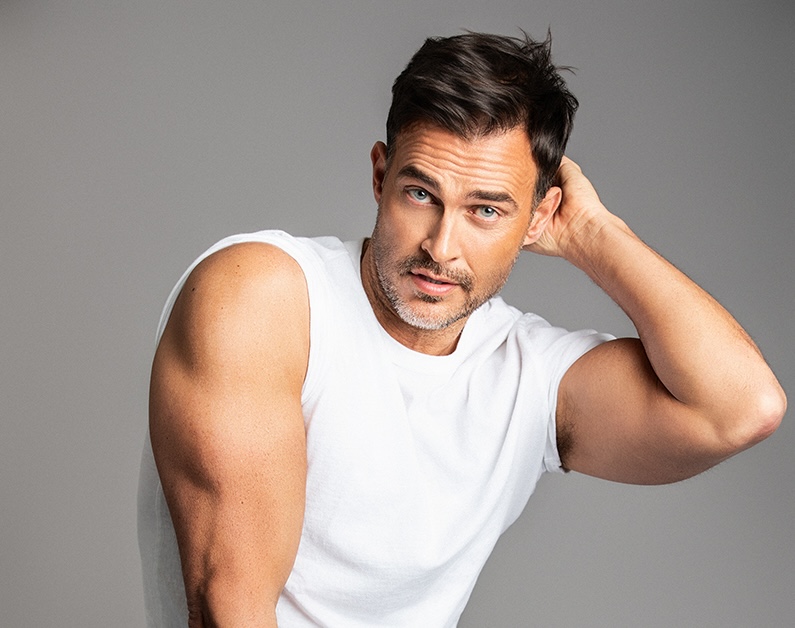Music Reviews: Troye Sivan’s “Bloom” and Jake Shears’ solo debut
Troye Sivan and Jake Shears embrace sexuality and self-love on a standout sophomore album and a fantastic solo debut

In his 2013 coming-out video, Troye Sivan expressed a feeling that would end up guiding his career. Reacting to the mantra, “It Gets Better,” Sivan retorted that we shouldn’t necessarily have to wait for things to get better — they can be great right here and now. His second album Bloom (★★★★) exists in a world where coming out is an afterthought, and gay love in particular is free, joyful and, above all, celebrated.
Sivan is a talented artist who obviously deserves recognition for more than the fact that he is a gay pop star, but he has straightforwardly and openly centred his sexuality on this record, making his queerness the focal point of the love songs on the album. The catchy slow burn “Seventeen” is a bold choice of an album opener, detailing a hookup with an older man told from Sivan’s perspective. In the lyrics, the singer bluntly recalls the tension between his active pursuit and the way he was taken advantage of in retrospect.
Sivan gives us other moments of pathos on tracks like “The Good Side,” “Postcard,” and “Animal,” which slow down the pop beats to create a more melancholy atmosphere. The emotion comes across as honest and they work well for what they are, but none of them are quite as affecting and visceral as the opener. Bloom is instead at its strongest when he is leaning into the more joyful sides of the queer experience, as he does on the title track “Bloom,” a catchy, understated celebration of bottoming. Another strong track, “Dance to This,” has him hold his own alongside Ariana Grande. The overlooked highlight of the album might just be “Plum,” a catchy track full of enough thinly-veiled fruit metaphors to make anyone who saw Call Me By Your Name blush.
If Troye Sivan’s first record can be seen as his timid step outside of the closet, then this one gleefully takes a sledgehammer to it. Bloom dares to imagine a world where the closet need not exist, where queer love and all its aspects can be embraced with joy and enthusiasm.
CALL IT A DEBUT, or call it a comeback, most of us are probably just happy to have Jake Shears back. With his instantly recognizable vocals, not to mention the sheer force of personality Shears brought to Scissor Sisters, his first solo record Jake Shears (★★★★) was probably never going to escape comparison with his former band. The album does draw on a lot of familiar energy and camp, but with the focus now on Shears himself, he is more able to craft songs in his own image.
During his time with Scissor Sisters, Shears became a master at packaging a chaotic mix of influences into songs that were incredibly catchy, usually campy, and often overtly, unapologetically queer. The angst-saturated, stadium-sized lead single “Creep City” is the most infectious track of the album and can easily stand alongside any of Scissor Sisters’ hits. “S.O.B.” (“sex on the brain”) and “Clothes Off” are saturated with a campy, yet visceral sexuality that recalls Night Work in its upfront, in-your-face homoeroticism.

Make no mistake though — this album is much more than a Scissor Sisters redux. Going solo gives Shears more room to draw on personal themes. One of the highlights of the album is “Big Bushy Mustache,” a self-image anthem with a clear message: Jake Shears loves his facial hair, and he wants you to love yours, too. Self love is a recurring theme of the album, usually coming through in the form of a cocky swagger, albeit one that is balanced out by pointed moments of vulnerability. “Sad Song Backwards” throws a bit of Americana into the chaotic mosaic of musical influences the album borrows from, resulting in an upbeat breakup ballad that riffs on the earnest melodrama that saturates Top 40 country.
The proud flamboyance and camp of the album is interwoven with moments of clarity and sincerity as well. The overwhelming feeling of Jake Shears is one of picking up and moving forward. It closes out on the steady, confident “Mississippi Delta,” a love letter of sorts to his adopted home of New Orleans, where he moved after his 2015 split from his long-term partner. There is an unmistakable sense that he has found himself here, and the album owes much to his rediscovered sense of self. The resulting ego trip is well worth tagging along for.
Bloom and Jake Shears are both out now and available to buy on Amazon.com and iTunes, and on streaming services.
Support Metro Weekly’s Journalism
These are challenging times for news organizations. And yet it’s crucial we stay active and provide vital resources and information to both our local readers and the world. So won’t you please take a moment and consider supporting Metro Weekly with a membership? For as little as $5 a month, you can help ensure Metro Weekly magazine and MetroWeekly.com remain free, viable resources as we provide the best, most diverse, culturally-resonant LGBTQ coverage in both the D.C. region and around the world. Memberships come with exclusive perks and discounts, your own personal digital delivery of each week’s magazine (and an archive), access to our Member's Lounge when it launches this fall, and exclusive members-only items like Metro Weekly Membership Mugs and Tote Bags! Check out all our membership levels here and please join us today!


























You must be logged in to post a comment.